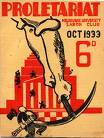Indecision

I bought Indecision by Benjamin Kunkel because I wanted something to read for my trip to California that would be fun, not too ponderous and possibly witty. It took me forever to find anything, and I wasn't wholehearted about my choice. Kunkel is one of the Latest Things, a new New York literary star, and I thought it might be like reading Douglas Coupland -- clever, swift and forgettable. There's a waste of 12.95, I thought gloomily.
Why buy it, then? Because I still have residual fear of flying and I need something that will keep me occupied on an airplane, the place I am most in need of distraction. And suddenly all the current fiction looked very serious and difficult. It's one thing to savor intelligent prose when you're in a library on planet Earth -- it's another to try to eke one drop of pleasure out of it when you're on a bucking, plunging airplane. At 4,000 feet I can't take on something that grapples with mutliculturalism, prejudice, gender dysphoria, or relgious rightism. I have to read something that touches on a breezy, effervescent world rather like P.G. Wodehouse's. (Why not P.G. Wodehouse, you ask. I've read him.)
So I launch into Indecision and am quickly rewarded for my low expectations and weak ruling-class preferences. The protagonist is a young man who uses funny, ironic phrases like "authentic-ish" and wears worn out corduroy pants and Brooks Brothers shirts. Add in a heavy-drinking father in Connecticut and a mother and sister ensconced in splendid Manhattan neighborhoods and you're plunked right into resonances of Salinger and his many imitators or heirs or whatever(ish). Sighing, you get ready to read another chronicle of the rich, white, East Coast male who takes recreational drugs, has too many attractive women to choose from and whose worst problem seems to be not knowing what his problem is.
But Kunkel's narrative voice is smarter than the glib ironists whose subject matter this has been. His character is chronically indecisive and notably shallow, and when a roommate persuades him to take a new drug for the irradication of indecisiveness, you feel a tiny pulse of sympathy for his feckless, upper-middle-class plight. But just a pulse. In general I hate and resent writers who went to expensive prep schools and write about their subsequent drug problems and slackerdom as if it atones for the advantages they picked up. No one is fooled by the slobby apartments and atrocious diets. Except them. Kunkel’s protagonist, somewhat sadly named Dwight, seems blithely unaware of his outrageously privileged position or at any rate unwilling to let it spoil his good time.
But Kunkel is aware of it. He escorts Dwight, who knows he's a cultural cliché, through some not-too-odd New York adventures and eventually a slightly odd trip to Ecuador, where he tries to hook up with an old classmate he always had a crush on. But this woman mysteriously vanishes and instead he meets a serious young socialist, Brigid, and they travel together, Dwight making predictable, bright, shallow, first-world comments about the difficulties of transport and accommodation in deeply poor Ecuador. Brigid seems unimpressed with him and this is the first note of optimism in the novel, for she is a young woman with intelligent ideas and ideals. As they travel, Dwight longs to make a pass at her but his gauche American provincialism seems to repeatedly turn her off.
Up to this point, I thought nothing too special of the book other than the obvious intelligence of its writer. Kunkel makes some great observations, such as New York being “pre-perceived” so it doesn’t need to be noticed, and other sly points about alienated Western society. But he doesn’t seem to be up to anything serious until Dwight, under the influence of Israeli Ecstasy, has a mind-expanding night with Brigid and actually renounces his apathetic former self. The scene is slightly unbelievable but what follows is exhilarating for what it doesn’t do as much for what it does. It doesn’t leave us bathed in a bittersweet sadness for all the sick, sad wealthy Americans who just worry and hurt each other and ruin the ‘good life’. It does show one fairly ordinary American come to a completely new sense of the world, and of himself as a possible agent of change. If this sounds like Soviet propaganda, the comparison isn’t entirely specious. Kunkel has written an old-fashioned proletarian novel disguised as a smartass Generation Y elegy for lost youth. It ends up slightly hamfistedly urging the reader to consider a change for herself. The clunkiness of the literary performance at this point seems entirely redeemed by the worthiness of the content. The book is a Marxist wolf in a Starbucks latte-holder sheep’s clothing. Yah hoo. Hurray for you, Benjamin Kunkel.

0 Comments:
Post a Comment
<< Home